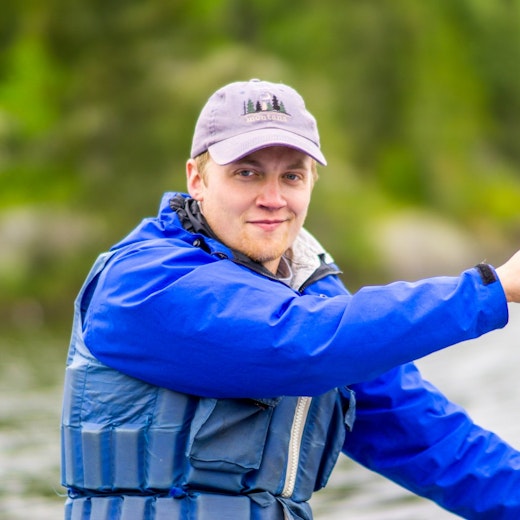
How can we teach children that failure is not the end of the road?
Our mindset, or attitude, governs nearly everything in our lives. It determines the way we live, experience the world, and make decisions. Our mindset shapes the way we view ourselves and subsequently what we can accomplish. According to Stanford University psychologists Carol Dweck, there are two types of mindsets:
In a fixed mindset students believe their basic abilities, their intelligence, their talents, are just fixed traits. They have a certain amount and that’s that, and then their goal becomes to look smart all the time and never look dumb. In a growth mindset students understand that their talents and abilities can be developed through effort, good teaching and persistence. They don’t necessarily think everyone’s the same or anyone can be Einstein, but they believe everyone can get smarter if they work at it.
Carol Dweck

So how can we teach children to have growth mindsets?
Teaching a child to have skills like resilience isn’t easy. Children don’t learn about resilience from books or lectures. But somehow, lecture-based teaching is still the most popular (and least effective) method of instruction in many schools today. Children - and adults - tend to learn best through personal, meaningful experiences. Many times, it’s through trial and error. “Sometimes, you gotta learn the hard way,” my dad always says. Children learn by doing. Children require an environment where trial and error is not only encouraged, but socially acceptable. I am not sure that sports or schools fit that requirement.

Another important factor in learning, is that we must be motivated to learn. That is, the material has to be relevant and we must be able to see the possibility of applying the new information.
What about wilderness adventure?
Wilderness adventure is experiential learning in its raw, truest form. It is relevant because campers are totally immersed in their environment and Mother Nature requires constant awareness. Learning how to steer a canoe, navigate, cook, and survive in various conditions is imperative to a successful trip into the wilderness. Wilderness adventures also provide numerous opportunities for stepping outside of our comfort zones. It is only through stepping outside of our comfort zones that we can expand the breadth of our comfort zones and therefore experience growth.
A skeptic might argue that wilderness trips are still only about teaching specialized skills that don’t translate to “real life.” Certainly, some skills like paddling, filtering water, and campfire cooking are specialized and may never be used again, once campers return to their normal lives. But wilderness trips teach more than just physical skills.

How wilderness trips encourage growth mindsets
Wilderness trips don’t have losers. For once, it doesn’t matter how smart or athletic children are. What matters is how they treat other people, what they contribute to the group, and how much honest effort they put forth. That’s it.
Campers get to make positive, meaningful impacts on their group(s). They help to haul gear over portages, cook supper, clean dishes, set up camp, navigate, and teach younger campers the ropes. Campers get to be a valuable asset to a group. How often does a child get to feel truly valued?
Traveling together in a wilderness environment also affords campers rare opportunities to work and play alongside adult role models. Veteran counselors role model the growth mindset. Unlike the sports stars of today, we don’t beat our chests in self-congratulations when we succeed – we high five our group mates and celebrate around the campfire, reliving our glorious trip stories while rationing our No-Bake Cheesecake. We finish sentences regarding things we have yet to do, with “yet”. For example, “I’ve always dreamed of doing the Grand Portage, but I’m not strong enough, yet.” Our staff is trained to manage group dynamics and promote growth.

Wilderness trips are inherently rugged and challenging and with challenge, comes reward. Campers get to feel success and experience it as a direct result of their willingness to go out of their comfort zones and work hard. The wilderness becomes proving grounds, the arena where campers can flex their newfound strengths. Nature becomes a medium for growth.
Campers learn the significance of goal setting when, before each trip, we cross our paddles and set individual and group goals. Then at the conclusion of our trip, we cross paddles again and reflect deeply and honestly on what we have or haven’t accomplished. Campers arrive back at camp walking with their chests out, heads held a little higher, and telling everyone (at a pace of ~500 words per minute) everything about their trip, until their heads finally hit their pillows at night.
The Bottom Line
Camp is often promoted under the guise of fun because that’s what draws kids (and it is fun!). But the essence of Camp Voyageur’s wilderness adventure philosophy is that all campers get to experience success. Campers learn that failure is not the end of the road. They discover that challenges and trying new things help them to grow. They learn the value of hard work. A desire to learn new skills is kindled within them. They get to feel like a valued member of a close-knit community that feels like family. Veteran counselors frame their language to encourage growth mindsets. Wilderness trips foster lifelong success by creating and reinforcing growth mindsets in ways that sports, school, and other environments simply cannot.



